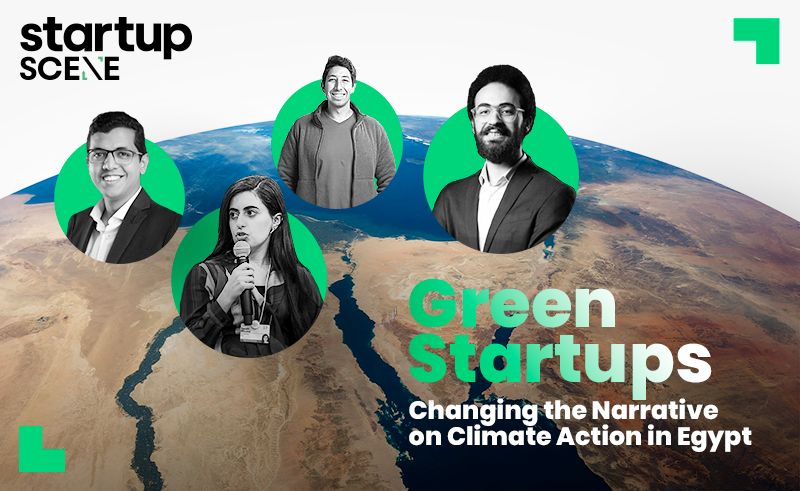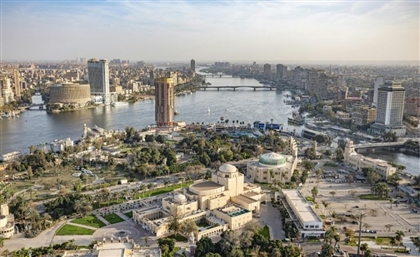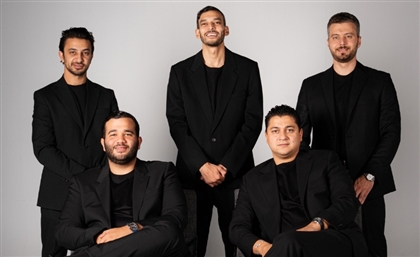Green Startups Changing the Narrative on Climate Action in Egypt
From addressing transportation to energy challenges, these green startups are bringing climate change to the forefront in Egypt.

With the conclusion of the COP27 UN Climate Change Conference in Sharm El Sheikh, we've seen sustainable and green startups showcase their innovative ideas and solutions to tackle some of the country’s most pressing environmental challenges.
In 2021, Egypt produced 259.3 million tons of CO2 emissions, according to research by Knoema. While emissions have increased in the last 50 years with an annual rate of 15.83%, Egypt still produces only 0.6% of the world’s CO2 emissions, as stated by Egypt’s Minister of the Environment H.E. Dr. Yasmine Fouad earlier this year.
Nevertheless, there is still much to be done to reduce the country’s carbon footprint. From addressing transportation to energy challenges, green startups in Egypt are encouraging people to make small changes in their daily lives, in hopes of achieving big results in fighting climate change.
CHANGING BEHAVIOURS
As the most populous country in the Arab world, Egypt is plagued by traffic jams. A short drive of two or three kilometres can easily take up to 30 minutes to complete. Most concerningly, carbon emissions produced from congestion accounts for about 25% of the nation’s total emissions, according to a 2022 report by ResearchGate.
In 2019, Karim El Soueni launched Rabbit Mobility to tackle the problem of unnecessary traffic, particularly for short distance rides. “Traffic is getting worse and worse,” El Soueni tells StartupScene. “But there is also a match that can be done with micro-mobility. We have data that shows that between 45% to 50% of the rides in Egypt are for distances less than 2 kilometres, so these distances could easily be replaced by electric scooters or e-bikes.”
Introduced to gated communities and the North Coast in 2021, the startup now offers electric scooters and bikes to several districts inside Cairo as well as cities across Egypt including Tanta, Mansoura, Port Said, Alexandria and - now - Sharm El Sheikh. To date, the startup has 190,000 users who are playing a key role in reducing carbon emissions in the country. “We’re currently at almost 53,000 kilograms of carbon emissions saved because of the number of car trips we’ve replaced with our own rides,” El Soueni says.
Despite the startup’s success in reducing emissions in such a short amount of time, it is still struggling to change people’s behaviour towards transportation. “This industry requires a lot of education and awareness for users here,” El Soueni explains. “Egyptians think of micro-mobility vehicles or bikes as for leisure or fitness, not necessarily for transportation. So, we had to be on the ground and do a lot of activations to make sure that people understand that they can use it to go to work, and not just to have fun.”
To further normalise the concept of micro-mobility, Rabbit is looking to expand its services in Egypt and introduce more types of electric vehicles, as well as enter new markets in Africa.
MAKING SUSTAINABILITY ACCESSIBLE
To create a meaningful impact in climate action, startups can’t only tailor their services to the eco-conscious. They must also be able to reach communities who cannot easily afford green solutions.
Shamsina, an Egyptian startup that provides affordable rooftop solar-powered water heaters to low-income households, was founded by Egyptian sisters Sarah and Deena Mousa in 2014 after seeing first-hand how some families in rural areas were heating their water.
“I spent a lot of time volunteering in underprivileged areas in Cairo, and noticed that some families were using unsafe and really time-consuming methods for heating water,” Sarah Mousa tells StartupScene. “Like heating one pot of water at a time over a gas tank, just to take a warm bath.”
Using proceeds from solar-powered water heaters sold to upscale, energy-conscious consumers, Shamsina is able to fund the provisions of water heaters for energy-poor communities. Since its launch, the startup has provided over 30 households across eight governorates in Egypt with solar-powered water heaters, and is now in the process of introducing its latest prototype as it moves towards mass-manufacturing.
“Choosing solar water heaters over other technologies is a pretty small change, but because it is something that we use every single day, the impact of this change can be tremendous,” Sarah Mousa explains. “We’ve estimated that for every household that replaces their current method of heating water with a solar water heater, we reduce at least 5 kilograms of carbon emissions every month. Multiply that number by hundreds of thousands of households, month after month, and this pretty small change in your daily habits can have a massive impact, both on the air you breathe and the long run wellbeing of our habitat.”
Shamsina is not the only startup making sustainability accessible to low-income communities. ReNile, an agritech startup that works with the Internet of Things (IoT), is also providing alternative solutions for farmers in Egypt. With its software and hardware products and services, the startup helps farmers monitor the environment to save on precious natural resources and reduce energy waste.
“Our systems reduce a lot of carbon emissions from farms, because we reduce the amount of time needed to work water pumps, electricity and irrigation systems,” Hazem El Tawab, Founder of ReNile, says. “Instead of the farmer working it for 12 hours a day, he can work it for just eight hours. This not only helps optimise the use of equipment, but it also reduces operating costs for farmers.”
DRIVING CHANGE
Despite these innovative solutions that Egyptian entrepreneurs are bringing to the table, there is still much to be done to support green focused startups in the country, particularly those that are working in new and emerging fields.
While renewable energy and agritech may be well-known sectors in Egypt, biotech still fails to attract the same amount of attention. Abdullah Al Atrash - Founder and CEO of Natrify, a biotech company that is dedicated to developing a sustainable and biodegradable alternative to single-use plastic - struggled with developing his new bioplastic technology.
“We’re a biotech company, so the infrastructure here is still limited,” Al Atrash explains. “When it comes to labs or sourcing materials needed for genetic editing, it takes a very long time for materials to arrive. It can take up to three, four or even six months for some materials to arrive. When it comes to research, this is not a sustainable way of working, because when you’re dealing with genetic editing, there are many variables involved.”
One way of circumventing this challenge is sourcing materials through local distributors or having research facilities abroad. “If I wanted to source it myself, it would be very difficult,” Al Atrash says. “Legally we can’t do it. So, it’s a huge challenge for us when it comes to R&D, but we have a lot of strategies that are going to be implemented by 2023 to help us overcome this, like having research facilities abroad.”
Times are slowly changing, however. With the government calling on every segment of society to get involved in climate action including youth, startups and the private sector at COP27, sustainability and green solutions will hopefully translate to tangible, real progress in addressing climate change.
“There are a lot of investments now in this space, particularly when it comes to cleantech, especially with COP27 taking place in Egypt,” says Al Atrash. “I believe that soon enough, in a couple of years, infrastructure will be good when it comes to investment and environment policies in Egypt.”
He adds that while biotech may still be a nascent field today, he is optimistic about its growth in the near future. “There is still so much that needs to be done with biotech, because there is not much awareness of this industry yet. There is still a lot of room for growth, but I believe it will get better with time.”
- Previous Article Forbes Under 30 Spotlight: MaxAB Empowers Small Retailers Across Egypt
- Next Article 10th Edition of RiseUp Summit to Take Place This March






















